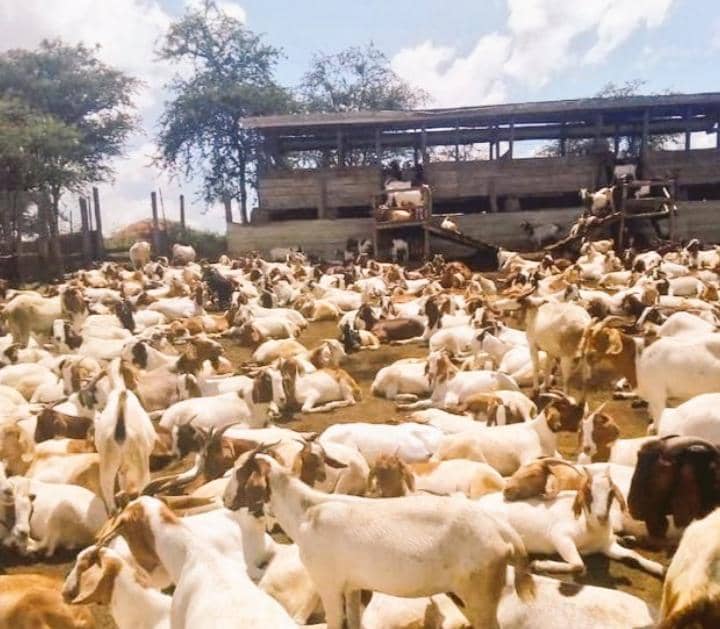
 Tiger FM
Tiger FM

 Tiger FM
Tiger FM
23 October 2025, 11:08 am

By Ronald Ssemagonja
Farming in Uganda, including goat farming, is increasingly becoming popular across the country. With the rising demand for milk, ghee, and meat, small-scale farmers are finding goats not just a source of food, but also a reliable source of income and improved nutrition.
When it comes to consuming goat milk, there are several benefits. It is easier to digest because it contains smaller fat molecules and a different protein structure compared to cow milk. It is also rich in nutrients, being a good source of calcium, vitamins A, D, and B12, as well as minerals such as potassium and magnesium. Additionally, goat milk has anti-inflammatory properties because it contains fatty acids and other compounds that may help reduce inflammation. It also supports bone health due to its high calcium and mineral content and may help with skin issues since its fatty acids and nutrients can soothe and moisturise the skin.
Hajji Kasule Ibrahim, a resident of Lubaga Division in Kampala district, shared how climate change has affected his earnings from goat farming.
“My name is Kasule Ibrahim. I’m a farmer specifically a goat farmer. I started in 2019 during COVID with only two goats, but now I have more than that. However, I would have had even more if the climate wasn’t changing,” he said.
He explained that before the changes in weather patterns, he could sell over ten liters of milk a week to Sudanese and Indian nationals, connected to him through a christian friend named Joshua.
“Like I said earlier, I used to earn more money than I do today, and I can’t say that I’m lazy because I’ve tried almost everything, including attending seminars and conferences organised by NARO and other groups. But climate change remains a big problem,” Kasule noted.
He added that he used to depend on rainwater and water from the National Water and Sewerage Corporation (NWSC), but that is no longer sustainable.
“Rainfall has reduced, and national water has become more expensive. My supplies reduced as the number of goats went down. I want to be clear on this; I’m a farmer who knows almost everything about goat farming. I’m suffering not because I’m naive, but because climate change has squeezed me to the wall. I therefore appeal to the government, through the Minister of Agriculture, Animal Industry and Fisheries, to implement the policies on mitigating climate change,” he said.
However, Dr. Nelson Baguma, a veterinary officer at Eram Uganda, emphasised that proper farming practices are essential for successful goat rearing. He explained that breed selection is crucial for example, Toggenburg and Saanen breeds are ideal for milk production, while Boer and Savannah breeds are better for meat. Feeding and housing also play a key role.
“Farmers can separate males and females to control flock size or synchronise births, ensuring steady milk production and avoiding overcrowding,” he advised.
It should be noted that in several villages such as Luweero, goat farmers like Nanyonga, who started with one Toggenburg doe in 2018, now own over seven goats. She confirmed that goat milk has greatly improved her children’s health, just as Hajji Kasule mentioned. This, she said, is because climate change has not affected farmers in her area as severely as it has those in Kampala district.